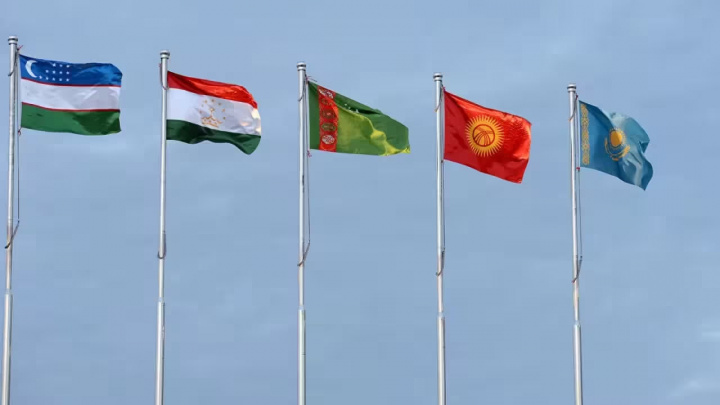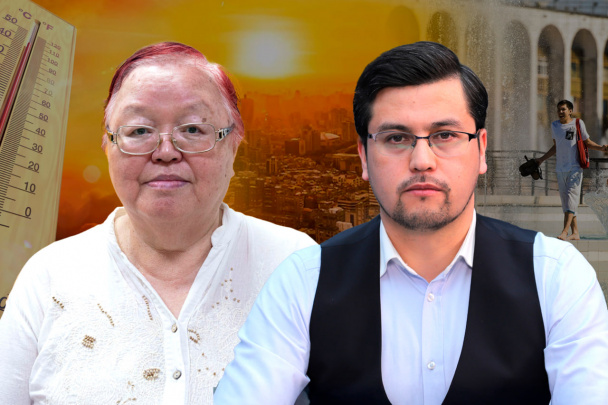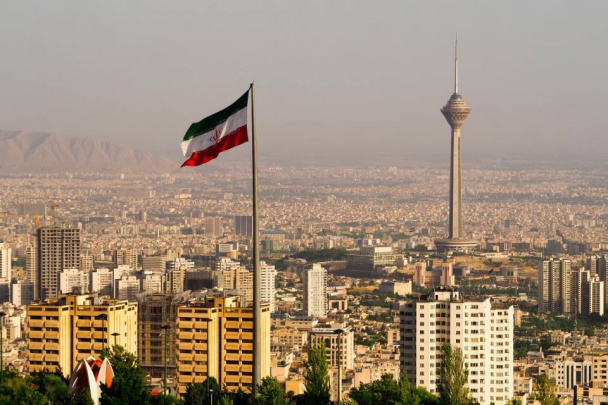How the Israel–Iran conflict reshapes Central Asia's geopolitical landscape
Israel’s aggression against Iran is yet another blow to international law. The erosion of international legal norms runs directly counter to the interests of Central Asia. Beyond the legal dimension, the region’s stance on the Israel–Iran conflict is also shaped by geopolitical, historical, ethnic, and religious factors.
Today, the primary issue drawing global attention is the Israel–Iran war. This conflict has already escalated to full-scale warfare. Israel launched a surprise attack on Iranian territory, killing not only civilians but also government officials and military personnel. In response, Iran carried out powerful missile strikes against Israel. As a result, the much-praised “Iron Dome” defense system was proven to be less than ideal – Iran’s missiles managed to breach it, causing significant damage.
So, what are the geopolitical and strategic dimensions of the Israel–Iran war from the perspective of Uzbekistan and Central Asia? Although countries in the region are trying to maintain diplomatic neutrality, from the standpoint of strategic national interests, is there a side they lean toward? Which outcome would best serve their interests?
The Russia–Ukraine war
It’s been more than three years since Russia invaded Ukraine, and a grinding war continues. Iran has clearly sided with Russia in this conflict, supplying drones to Moscow. This raises a critical question: What is Iran’s objective?
Two major motivations seem to be at play. Most countries around the world view the Russia–Ukraine war as a proxy war between the West and Russia, with Ukraine acting as the West’s proxy. However, newly independent states that emerged after the fall of the Soviet Union – including Uzbekistan and other Central Asian nations – see the war from a different perspective. From their vantage point, Russia is waging war to restore its imperial ambitions. If Ukraine loses, Russia will not stop – its imperial appetite will grow, and pressure on Central Asia will only intensify.
So, why is Iran supporting Russia in this war? Is Iran unhappy with the political and geopolitical independence of Central Asian states? Does it want to see them subjugated by Moscow? Not at all. Iran’s motive is to push back against NATO, to prevent the U.S. and the broader Western bloc from claiming victory. However, Iran fails to see that a Ukrainian defeat would also bring negative consequences for Central Asian nations. In truth, Iran has no objection to the independence of Uzbekistan, Tajikistan, and other sovereign states in the region.
Turkic world cooperation and Iran
The 20th century was a tragic period for the Turkic world. With the exception of Turkey, all Turkic nations lost their independence and political sovereignty. Only by the end of the century, after the collapse of the USSR, did five Turkic states regain independence. Today, six Turkic countries are increasingly building strategic cooperation, solidarity, and unity.
Iran is seen as one of the countries that is not entirely comfortable with this Turkic integration. The reason lies in Iran’s demographics: roughly one-third of its population – about 30 million people – are Turks, mostly ethnic Azerbaijanis. Consequently, certain political circles in Iran may view Turkic unity as either an implicit or explicit threat.
However, historically, Turks and Persians have been deeply intertwined, living in harmony for centuries. In Iran, Azerbaijanis constitute the second-largest ethnic group. Similarly, Tajiks form a significant portion of Uzbekistan’s population, while Uzbeks are a major minority in Tajikistan. Politics is often described as the art of achieving objectives – and from a strategic standpoint, there is no real basis for Iran to be wary of Turkic cooperation. On the contrary, by building reliable partnerships with Turkey, the Caucasus, and Central Asia, Iran could actually strengthen its position. Iran is neither an enemy nor a rival of the Turkic world, and vice versa – the Turkic world is neither a threat nor a problem for Iran.
The Iran–Israel war
Today, Iran is one of the most vocal countries in the Muslim world. Since the 1979 Islamic Revolution, the Iranian government has not remained indifferent to the struggles of the Muslim ummah and has attempted to respond to their pleas wherever possible. If Iran were to fall in a war with Israel, it would be a major loss not only for Muslim countries in the region but for the entire Muslim world.
Israel’s ambitions are not limited to Iran. Its ultimate goal is to subjugate the key centers of the Muslim world and weaken or dismantle any Muslim state capable of standing up to it—either by neutralizing them, fragmenting them, or plunging them into civil war.
Israel’s long-term project is the creation of a “Greater Israel.” To this end, and with the support of the United States and Western countries, Israel is actively seeking to annex land from neighboring states. The country has entered a new, more aggressive phase in the pursuit of this goal. Therefore, Iran’s downfall would pose a serious challenge not only to Iran but also to Turkey, Pakistan, Saudi Arabia, and other major Muslim powers. Israel would continue efforts to remove every powerful Muslim nation from the equation. In short, Iran’s defeat would further weaken the Muslim world.
Uzbekistan–Iran: A shared history
For the past millennium, the peoples of Uzbekistan and Iran have only been politically separate for about two centuries. Historically, they have always belonged to the same cultural sphere, and often to the same political systems. For example, Iran was once part of Amir Temur’s empire. Mirzo Ulugbek was born on what is now Iranian territory. At times, parts of present-day Uzbekistan were under Iranian rule, and vice versa. In terms of cultural mindset and heritage, the peoples of Iran and Uzbekistan are among the closest.
Iran has not been the aggressor. On the contrary, Israel has long been committing acts of aggression against its neighbors. For more than a year and a half, it has been carrying out what many describe as an unprecedented genocide in Gaza. The problem lies not with Iran, but with Israel. Israel is not seeking peaceful coexistence within its own borders – it aims to expand them by occupying neighboring territories and committing atrocities against their populations.
Iran would be the seventh country targeted by Israel – not the first. So, the real issue is not with Iran, but with Israel. If Israel chooses to live within the bounds of international law, its conflicts with its neighbors could begin to be resolved.
Kamoliddin Rabbimov
Political Scientist
Related News

17:53 / 06.08.2025
Kyrgyzstan sees fastest acceleration in GDP growth across Central Asia

12:10 / 26.07.2025
Extreme heat could slash Central Asia’s GDP and overwhelm public services

21:06 / 17.07.2025
British MPs form new group to strengthen ties with Central Asia

14:40 / 26.06.2025



